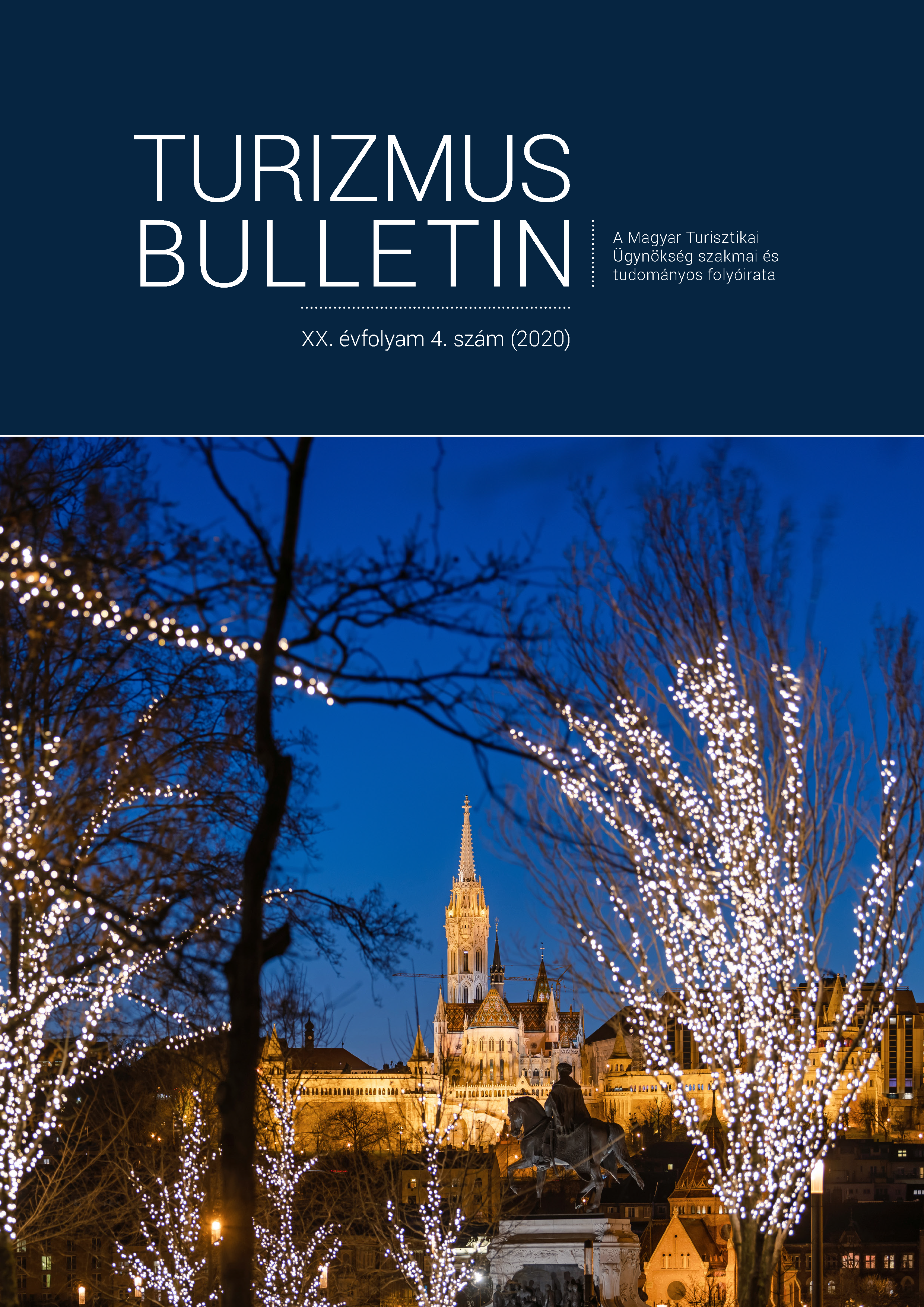Is the situation warming up? The effects of climate change shown by three Hungarian tourist destinations
DOI:
https://doi.org/10.14267/TURBULL.2020v20n5.3Keywords:
climate impacts, tourism, climate change adaptation, destination responsesAbstract
Current changes in the weather are having a noticeable impact not only on the environment, but also on the human body and on social and economic processes. Although the situation generated by the coronavirus pandemic has temporarily overshadowed discussion of the effects of climate change on tourism, the topic has not lost its relevance. The involvement of the sector in the issue is unarguable. Its operation is based on attractions with particular geographical locations, most of which are linked to certain weather conditions. In the present study we examine the visible effects of climate change which also generate changes, and we discuss the issue of climate adaptation at local/regional level by involving certain supply-side players in the Hungarian tourism sector. As our studies suggest, the “losers” and “winners” of the processes are difficult to separate, but a broad analysis of destination-level climate adaptation issues is both vital and urgent in the tourism sector.
References
CSETE, M. – PÁLVÖLGYI, T. – SZENDRŐ, G. (2013): Assessment of climate change vulnerability of tourism in Hungary. Regional Environmental Change. 13. pp. 1043–1057.
DE FREITAS, C. R. – SCOTT, D. – McBOYLE, G. (2008): A second generation climate index for tourism (CIT): Specification and verification. International Journal of Biometeorology. 52(5). pp. 399–407. DOI: 10.1007/s00484-007-0134-3
DOMJÁNNÉ NYIZSALOVSZKI R. – SÜTŐ A. (szerk.) (2018): Magyarországi esettanulmány: A Mátra–Bükk desztináció turizmus szektorának alkalmazkodási kérdései. NATéR továbbfejlesztése projekt C3 munkacsomag esettanulmány jelentés. MBFSZ, Budapest.
GIDDENS, A. (2009): The Politics of Climate Change. Polity Press, Cambridge.
GREEN, P. K. (1997): A Plain English Guide to the Science of Climate Change. Reason Public Policy Institute, Washington DC. https://reason.org/wp-content/uploads/1997/12/d2525915cbdacff6e9530725d0a069dc.pdf
HANSEN, J. (2009): Storm of my grandchildren: The truth about the coming climate catastrophe and our last chance to save humanity. New York, Bloomsbury.
HUFNAGEL L. – SIPKAY CS. (szerk.) (2012): A klímaváltozás hatása ökológiai folyamatokra és közösségekre. Budapesti Corvinus Egyetem, Budapest.
HUYBERS, T. (2003): Domestic tourism destination choices: a choice modelling analysis. International Journal of Tourism Research. 5(6). pp. 445–459. DOI: 10.1002/jtr.450
KOVÁCS A. (2017): A turisztikai klímapotenciál értékelése eredeti, valamint továbbfejlesztett és a magyar lakossághoz adaptált eszközökkel. Doktori (PhD) értekezés, Szegedi Tudományegyetem Földtudományok Doktori Iskola. https://doi.org/10.14232/phd.3860
LYNAS, M. (2007): Six Degrees: Our Future on a Hotter Planet. Washington DC, National Geographic.
LŐRINCZ K. – RAFFAY Á. (2014): Éghajlatváltozás és turizmus: a hazai TDM szervezetek klímabarát tevékenysége. NFA Füzetek. 3(2). Klímaváltozás és turizmus. pp. 75–88.
NÉMETH K. – SÜTŐ A. (szerk.) (2018): Magyarországi esettanulmány: A Nyugat-Balatoni térség turizmus szektort érintő klímaalkalmazkodási kérdései. NATéR továbbfejlesztése projekt C3 munkacsomag esettanulmány jelentés. MBFSZ, Budapest.
PÁLVÖLGYI T. – CZIRA T. – DOBOZI E. – RIDEG A. – SCHNELLER K. (2010): A kistérségi szintű éghajlatváltozási sérülékenységvizsgálat módszere és eredményei. „Klíma-21” füzetek. 62. pp. 88–102.
RUTTY, M. – SCOTT, D. (2014): Thermal range of coastal tourism resort microclimates. Tourism Geographies. 16(3). pp. 346–363. DOI: 10.1080/14616688.2014.932833
RÁTZ T. (2006): Az éghajlati és időjárási tényezők szerepe az utazási magatartás befolyásolásában. Turizmus Bulletin. 10. Különszám. pp. 42–53.
SCRUTON, R. (2012): Green Philosophy: How to Think Seriously about the Planet. International Publishing Group, London-New York.
SÜTŐ A. (2018): Magyarországi esettanulmány Pécs és térsége turizmus szektorának alkalmazkodási kérdései. NATéR továbbfejlesztése projekt C3 munkacso¬mag esettanulmány jelentés. MBFSZ, Budapest.
SÜTŐ A. – FEJES L. (2019): A turizmus ágazat je¬lenlegi és potenciális éghajlati sérülékenységé¬nek területi különbségei Magyarországon. Tér és Társadalom. 33(3). pp. 108–126. https://doi.org/10.17649/TET.33.3.3178

